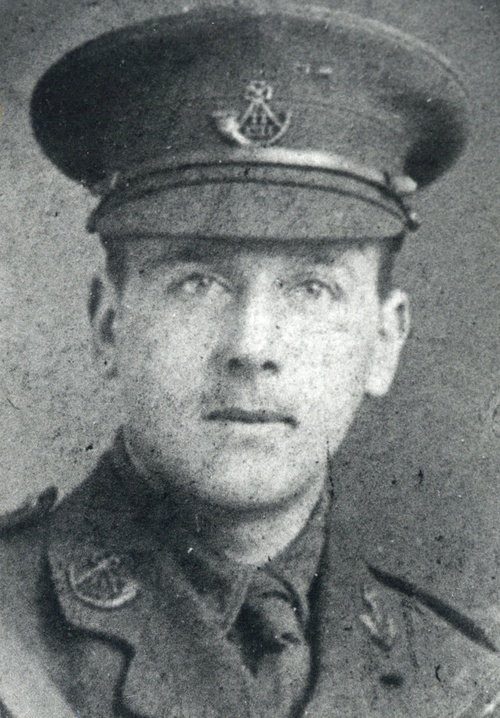
Auction: 20001 - Orders, Decorations and Medals - conducted behind closed doors
Lot: 831
'I have seen him lying flat on his face in a tiny dug-out no bigger or higher than the underneath of a small dinner-table, in the front line, dashing off the first half of one of his articles for Punch. He would have to stop in the middle and crawl out on a patrol up to the German wire, have a scrap out there with a Bosch patrol at a few yards' range, stay out there for two or three hours, and crawl back, soaked to the skin and covered with mud, to finish his article in time for the post.'
A posthumous tribute to Lieutenant Johnston by Captain T. Ingram, D.S.O., M.C., published in Punch
The fascinating and deeply moving Great War trio to Lieutenant A. Johnston, King's Shropshire Light Infantry, whose witty and candid accounts of life in the Ypres Salient earned him universal esteem; with courage equal to his intellect, Johnston's career as a Punch journalist was cut short in April 1916, when he was killed by a sniper while leading a successful attack
1914 Star (1638 Pte. A. Johnston. 28-Lond.R.); British War and Victory Medals 1914-19 (Lieut. A. Johnson.), with the recipient's cap badge, good very fine (3)
Alec Johnston was born in 1890, the son of George F. Johnston, M.D. of 23 Seymour Street, Portman Square, London. Educated at St. Paul's School, he studied Classics at Oxford and briefly worked as a schoolmaster before the outbreak of the Great War. Two days after war was declared, he enlisted into the 28th (1st Artists Rifles) Battalion, London Regiment, arriving in France in October 1914. In February 1915 he received a commission in the 1st Battalion, King's Shropshire Light Infantry, which moved from Armentières to the Ypres Salient. A talented linguist, he taught himself German during his spare time in the trenches.
Johnston also began writing for Punch magazine, contributing a series of light and satirical sketches called At the Front. His friend and brother officer Captain T. Ingram, R.A.M.C. recalled how he would write articles anywhere, using 'any odd scrap of paper.' Crawling up to the German lines and scribbling in shell-holes, Johnston brought a rare authenticity to his work, Ingram remarking: 'Work done like that could not fail to ring true.' Johnston's articles were edited after his death and published in 1917, the editor reflecting: 'They are typical of that spirit of brave humour, essentially English, that makes light of the worst that fate can send.' Extracts include:
'The land must be spied out; the country which we are - for some obscure reason - fighting for is one-half lake and one-half swamp. Accordingly, as the attack has to have clean boots on parade next day, scouts go forward to select the most land-like portions of the morass. Then at last we advance, and with only an occasional halt for coffee - this depending on the number of farms en route - we sweep on to the rallying position, where we sit down nonchalantly in a hail of bullets and discuss a haversack ration while a real officer tells us how. His telling is competence itself, except in one respect; he never makes sufficient allowance for coffee. No one has told him that the arms of our service battalion are an estaminet couchant in a field sodden.'
Johnston showed great personal bravery during an attack at Hooge in August 1915, when his platoon lost direction due to the smoke and missed their objective. He sat calmly in a shell hole with his compass, and resumed the attack. He was then the only officer left in his Company. Despite being wounded in both legs, he saw his men to safety before being hospitalised for several weeks. He was promoted to Lieutenant in September 1915. His friend Ingram wrote the final chapter of his story:
'Lt. Alec Johnston, 1st King's Shropshire Light Infantry, was shot through the heart by a German sniper at dawn on April 22nd, 1916. In a sense his work was done and certainly well done. At shortest notice, the battalion had been called upon to retake a vitally important salient that had been captured and consolidated by the enemy for forty-eight hours. After his captain had been severely wounded, he led the centre company of the attack, and in inky darkness, through driving rain, over shell-torn ground in waist-deep mud they made good. For that night's work the battalion was personally thanked by the Corps Commander, and mentioned by name in despatches.
All that night Johnston was indefatigable; he was everywhere, strengthening the captured position, beating off counter-attacks, and, to save time, always moving about in the open. As dawn was breaking he refused to go into the safest part of the trench, saying, that when it was too light to stay "on top" he would go into "the first old crump hole handy." Utterly gallant always, the hotter the show the cooler he got; yet in no sense was he reckless, and he used his head at all times.'
Johnston's grave was marked with a simple cross bearing a silver plaque with the moving epitaph 'WELL DONE', likely sent by his father. He was later re-buried at Essex Farm Cemetery (Grave Reference II.Q.19). Ingram's tribute to Johnson appeared in Punch on 17 May 1916. Johnston's Great War Medals were sent to his father at 23 Seymour Street, Portman Square on 11 December 1920.
Sold with a hard-back 1st edition copy of the recipient's collected Punch articles entitled At the Front (1917), and a silver locket of 32mm x 21mm dimensions worn by the recipient's next of kin, containing his black-and-white portrait photograph alongside the engraved words: 'ABOVE AND STRONGER THAN HIS WISH FOR LIFE, WAS THE WISH TO DO HIS DUTY.'
Subject to 20% VAT on Buyer’s Premium. For more information please view Terms and Conditions for Buyers.
Sold for
£1,100
Starting price
£280




